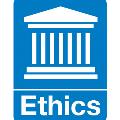Presented by the CT Bar Institute
About the Program
Investigations by lawyers are an essential element of most litigation matters. Lawyers investigate the opposing parties and the facts underlying the case using third-party investigators, researching public records, interviewing witnesses and sometimes by conducting surveillance. Additionally, lawyers sometimes need to investigate their own clients or witnesses to a case. Lawyers may need more information about their own clients to assure themselves of the truthfulness of certain representations or if the lawyer suspects the client may be actively misleading the lawyer. Also, obtaining information about a witness can be essential in helping a lawyer prepare their strategy.
Additionally, attorneys practicing corporate, M&A and bankruptcy often need due diligence information about their clients’ potential partners or new management teams. It’s important for the lawyers to know what information is relevant and where they can go to obtain that information. Some due diligence information is available nationwide, but other types of information is only available on a state by state or even county by county, basis.
It is vital for attorneys to understand that there are limits to how an investigation is conducted. Ethics rules make it clear what lawyers can say and do, and they also outline what investigators can do on the attorney’s behalf. This presentation will provide attorneys with a strong understanding of the ethical issues involved in conducting investigations.
You Will Learn
- About what investigators can and cannot do
- About the difference between ethical violations and criminal violations
- About the types of due diligence information that is available on individuals and corporations
- About practical considerations when conducting field investigations, including witness statements, surveillance and locate investigations
- About the distinction between an investigation in the United State versus one conducted in other countries
- About how technology is impacting investigations
Who Should Attend
All attorneys who want to develop a strong understanding of the ethical issues involved in conducting investigations.
Cost
(Includes electronic materials*)
Solo/Small and YLS Section Member $25
Member $35
CLE Pass Holder $0 (you must have purchased the CLE Pass to register as a CLE Pass holder)
Student Member $15
Non-Member $70
Please log into your account to receive CBA pricing.
Financial hardship information is available upon request.
CT: 1.0 CLE Credit (Ethics)
NY: 1.0 CLE Credit (Ethics)
The Connecticut Bar Association/CT Bar Institute is an accredited provider of New York State CLE. This program qualifies for newly admitted and experienced attorneys CLE credits.
Attorneys seeking NY CLE credit who have been admitted to the New York State Bar for two years or less must attend the live seminar for skills or ethics credit, a fully interactive videoconference, or simultaneous transmission with synchronous interactivity. Diversity, Inclusion and Elimination of Bias CLE credits are only available as non-transitional credits. For further information please see the NYCourts.gov page on CLE: http://ww2.nycourts.gov/attorneys/cle/index.shtml.
If the seminar is recorded, all member registrants will receive complimentary access to the recording approximately six weeks after the program.
Please note that refunds will not be granted once course materials have been sent. Cancellations made less than 2 business days prior to event are non-refundable.
Closed captioning will be available during the seminar presentation for virtual attendees.